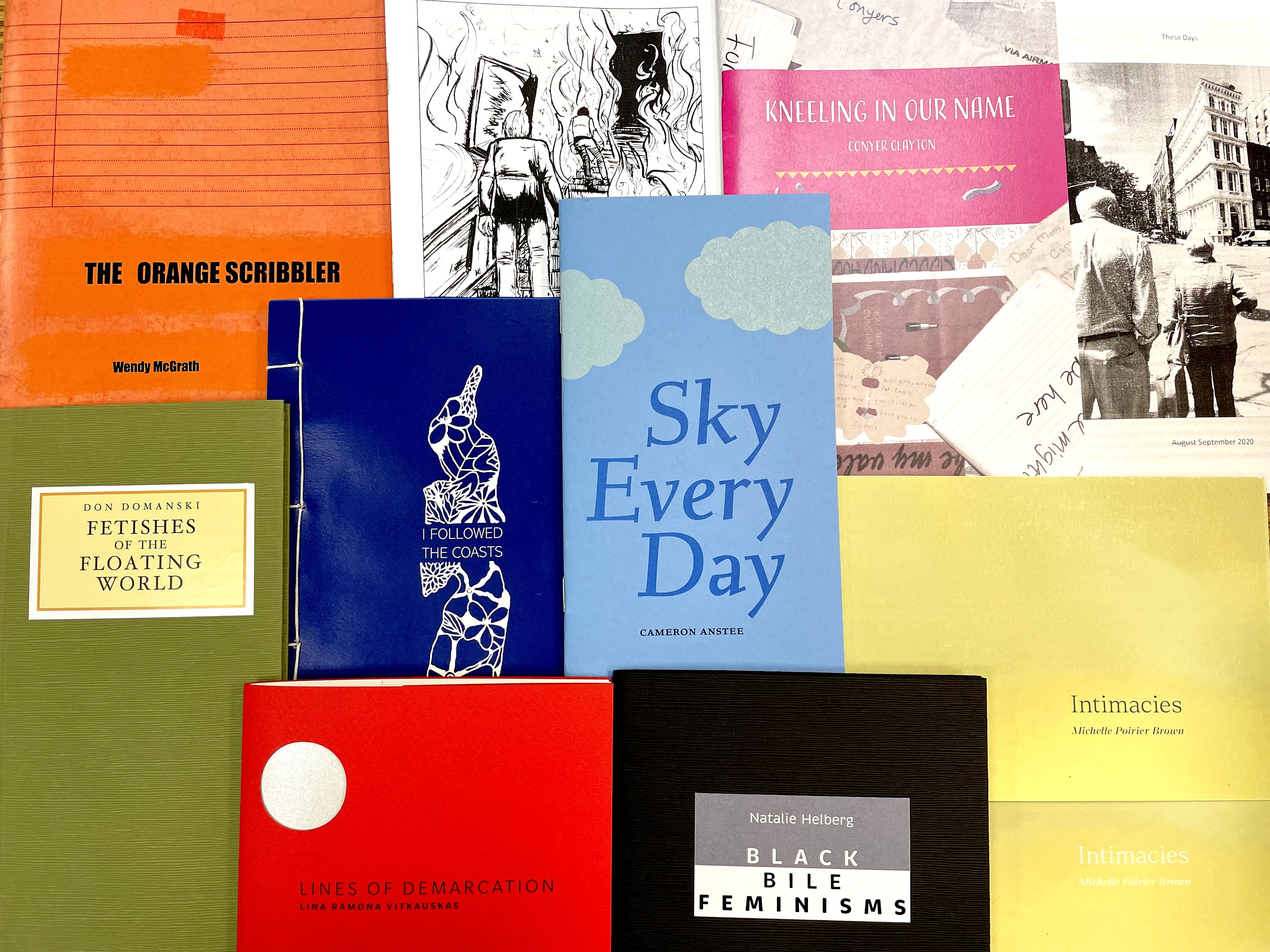
The William Ready Division of Archives and Research Collections is known for its expansive catalogue of rare books and various archives, but the department is also doing important work by preserving contemporary items within its collection.
In 2024, the university libraries’ archives and research collections began allocating funding to create the Contemporary Chapbooks and Small Press Ephemera Collection.
Gillian Dunks, collection development archivist at McMaster University Libraries, is responsible for maintaining and growing the collection.
“One common definition of a contemporary chapbook is that they are small books written and designed to artistic standards,” said Dunks. “They're printed sometimes by an author or a small press and produced outside of the mainstream commercial book trade. They're usually printed on one or more large sheets of paper and folded, then bound by hand with a pamphlet stitch or staples.”
The collection contains chapbooks from small presses across Canada, with a focus on the southern Ontario region. Currently, the collection holds nearly 500 chapbooks and represents 22 Canadian presses, including above/ground, JackPine, and espresso.
Wade Wyckoff, associate university librarian at McMaster University Libraries, says the collection plays an important role in amplifying the work of Canadian authors and publishers.
“This collection builds on our long-standing strengths in Canadian authorship, poetry, small presses, and publishing,” said Wyckoff. “Our goal is to collect, preserve, and make accessible these works that are often produced in very limited quantities. The chapbook and ephemera collection has natural connections to the Ready Division’s established focus areas. It helps to ensure our collections reflect the diversity of voices and approaches to writing and publishing that exist in Canada.”
Contemporary chapbooks can contain works of various genres, but the format is most often used by poets. Dunks says it is important to preserve such materials while they are still contemporary.
“Poetry is famously not commercially viable for Canadian publishers to produce,” she said. “The small presses who produce poetry do so out of love for the work and the printing process, but they're often not turning a profit from their titles and may struggle to cover their operating costs. They don’t produce large print runs or frequently reprint titles. If academic libraries don’t collect the works quickly, they'll probably not be collected at all.”
The Contemporary Chapbooks and Small Press Ephemera Collection also includes zines with a literary orientation. Zines are similar in format to chapbooks, but typically have a lower production quality. They most commonly have an intentionally photocopied aesthetic, and they have a long association with comic fandom and punk and feminist communities.
In the coming years, Dunks will continue building upon the collection by acquiring more chapbooks, zines, and ephemera from Canadian small presses. She hopes the collection will inspire the McMaster community and the public to create their own chapbooks and zines.
“People have a real desire to feel connected to some aspect of physical production in this highly mechanized and automatized era, and chapbooks and zines are ideal formats for this exploration,” she said. “I would love to see artists, students, faculty members, and people in the community getting a sense of what's possible with this collection and using it as a reference when they're making their own work. It’s free and accessible to everyone in the community.”
Related space
